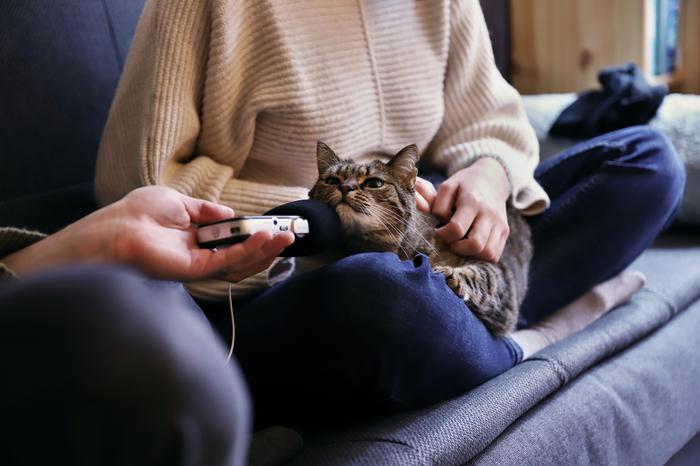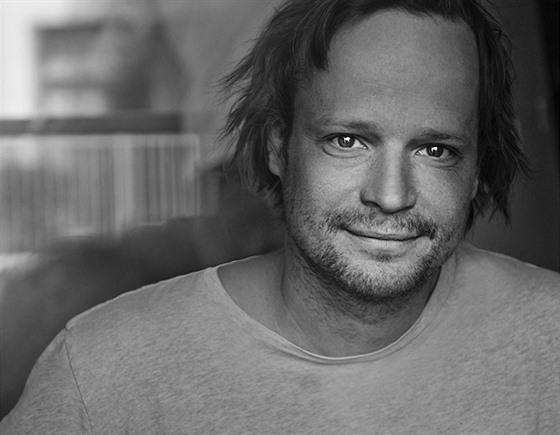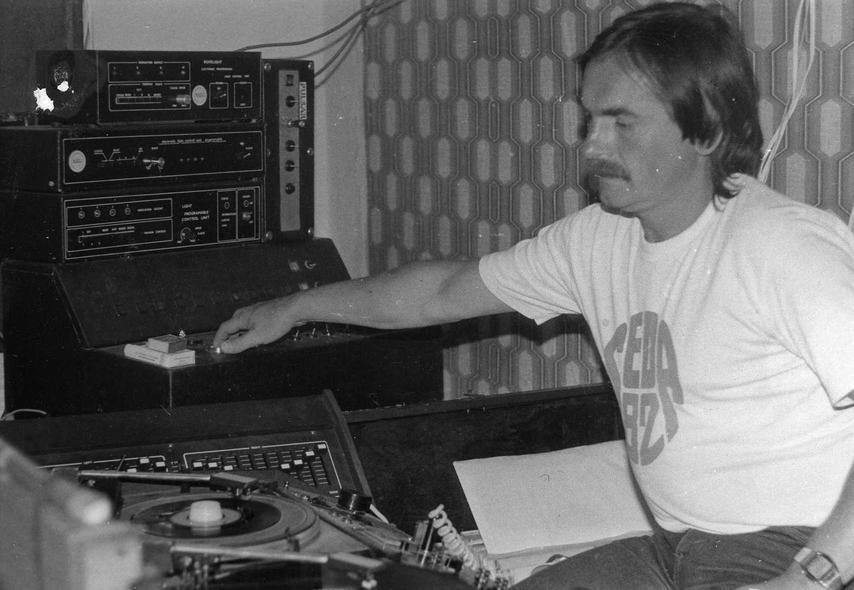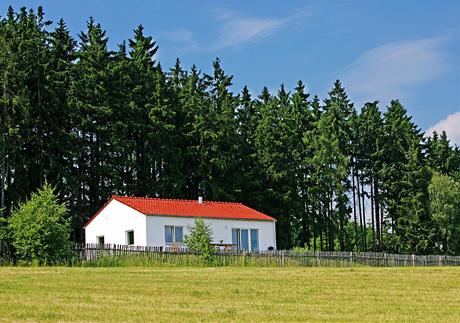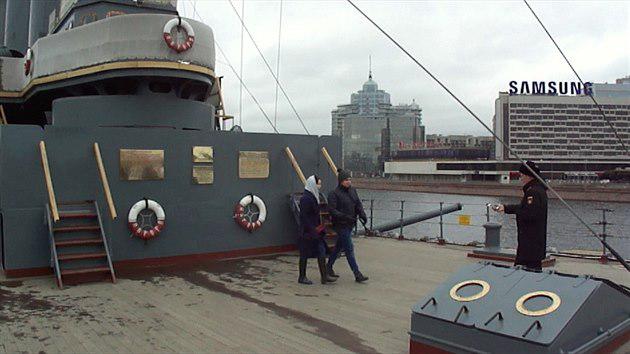
Director Rocc: I love working with living authors | Opera Plus
Audiences of the Opera Music Theater Festival 2022 will have the opportunity to visit two productions directed by Rocc: Beyond the Garden and TiAmo. What makes both performances specific from a directorial and musical point of view? Why is it important for Rocco to be an active co-creator when staging a classical repertoire? And how can one dramaturgically extricate Carmen from the clutches of death?
Would you first tell us something more about the two works that we will be able to see as part of the Opera Festival 2022 - Beyond the Garden by composer Stephen McNeff and TiAmo, under which Ivo Medek, Sára Medková and Vít Zouhar are signed? something about the festival itself. I had the opportunity to visit it as a guest or as a spectator in different years, and I perceive the efforts of the director, Lenka Šaldová, to expand the program to include underground and experimental works in addition to institutional opera performances, as very positive. The first production that we have the opportunity to present at the festival on January 29 is the Beyond the Garden project. It is an opera by contemporary living composer Stephen McNeff, which in its form still honors the classical operatic form.
How did your collaboration come about? The Beyond the Garden project was a co-production with the Slovenian Chamber Music Theater in Ljubljana and our association Opera Povera in the Czech Republic. In 2020, the Cankar House in Ljubljana, the largest cultural and event center in Slovenia, provided us with the facilities to hold the world premiere there. The Czech premiere took place only last December, a month ago.
In other words, the pandemic took over. Yes. The world premiere was also in jeopardy, we moved it from July to September 2020. At that time, there was about a week period when the theaters opened again. We had great restrictions regarding the audience, but we were able to premiere the show live. I think the lockdown started two or three days after one of the replays.
In the Czech Republic, the premiere was originally supposed to take place in autumn 2020, but there was a year of waiting. Then in December 2021, when we were supposed to perform the premiere in Brno as part of the New Music Plus festival, about two weeks before, the conditions for performing live music changed, and our international team did not meet them. At the last minute, we had to solve a stand-in for the conductor and the concertmaster. It was very stressful. The changed "Czech" team will now also perform the upcoming Prague performance - in the meantime, however, the conditions have changed again, so now I communicate with individual members on a daily basis and find out who is vaccinated twice, who three times and who has already experienced covid.
How was your creative collaboration with the composer? I met Stephen McNeff in 2017 in Ljubljana, where he was guesting with another of his chamber operas. On that occasion he mentioned to me that he was dealing with motifs from the life of Alma Mahler and her daughter Manon, whom Alma had with Walter Gropius and who died at the age of eighteen from a then incurable disease. Part of Alma Mahler's life was also a stay at the Venetian hotel Oltre il Giardino (in translation, Beyond the Garden), which still exists today. We have translated the term "il Giardino" into a kind of metaphorical form in Beyond the Garden. Stephen and I had a long talk, and I said to him, "Let's not make a documentary about Alma Mahler." That seems terribly dangerous to me, because we don't have that many sources about the relationship with her daughter itself. On the other hand, the topic of the relationship between mother and daughter seemed very timeless to me: what does it mean to lose one's own child, what does it mean to build one's career and take care of one's family at the same time, and so on... From the concrete level, we finally got to the abstract level.
Was there a parallel theme or story inspired by the basic floor plan? Alma became Otílie and Manon became Klára. The whole concept can be reminiscent of Bergman's film Persona. There is an elderly lady in the room, who suddenly starts talking to a younger girl, who we don't know if she is her carer, daughter, friend or just an imagination... The ending is not entirely clear and one balances between what is reality and what is fantasy .
How do you assess the cooperation with other members of the staging team? I find the libretto by Aoife Mannix, a poet inspired both by romanticism and symbolism, absolutely captivating. However, her poetry is completely contemporary. Her speech is extraordinarily bushy and ornamental, in places it seems as if the form absorbs the content, but it still rules everything. And she in turn implants allusions and information related to Alma Mahler into the text in a decent way.
From a director's point of view, meeting the two protagonists of Otília and Klára: mezzo-soprano Susan Bickley and lyric soprano Katja Konvalinka was the alpha and omega for me. I have known Katja for a long time, we did The Diary of Anne Frank and other productions together. It was necessary to construct a natural relationship between the two ladies as singers and within their characters in the opera.
How are you looking forward to the re-staging in the Prague cultural space of Venus in Švehlovka? From the beginning, we were not looking for a classical theater space for this opera. As I have already performed several productions in classic peephole theaters, I always like to look for new spaces for opera. I'm honestly looking forward to it because I don't know Venus yet. I enjoy stepping somewhere I haven't been before.
The space in Venus "speaks for itself" by having the appearance of a shabby cabaret hall. Not only is Alma also a "Venus", but the space there looks both like a cabaret and at the same time like some kind of western saloon, which is exactly what we want: salon. This performance always works as site-specific. In Ljubljana, for example, we played it in a chamber arena, which has an auditorium all around. I divided it into two halves, where Otílie sat in one half and waited - perhaps for a concert? Or for your dream? We don't know that. It felt very surreal. In Brno, we again staged the performance in the auditorium of the JAMU Faculty of Music, and when we were visiting in Olomouc, in the chapel of the Konvikt of the Palacký University.
As far as the instrumentation is concerned, is Beyond the Garden a purely acoustic piece? As far as I know Stephen McNeff's work, he probably doesn't work with electronics as a composer. It is a chamber opera for soprano, mezzo-soprano and chamber orchestra, written in a classical score from the first bar to the last. There's an extra moment of piano entry and we also have an incredible list of percussion.
How would you characterize the musical means used? I would say that, from a musical point of view, these are extremely challenging parts of both singers. The exams themselves took a very long time. Both ladies are on stage for essentially the entire seventy minutes with minor instrumental interludes. He must be permanently "on the alert". It is a constant dialogue and at the same time a classical operatic composition, with the composer actively entering into it even now. After each execution, he makes further minor adjustments. I understand him - and musicians "hate" him because they get used to something and then it changes (laughs). It is sometimes very difficult to catch something intonation there. After the last performance in Olomouc, Stephen wanted to make some drastic changes, but we agreed that we would leave the Prague performance in its "Urfassung" form.
What are the advantages and disadvantages of working on an opera during the author's lifetime? And vice versa - what are the advantages and disadvantages of working with the classical repertoire of long-dead greats? I love working with living authors. Of course, I have my favorite masters in the classical repertoire, but I often miss the dialogue when working on a production of their operas. I care more and more about teamwork - and opera is teamwork. When one is alone in the process of creation, one can lose distance in places. At the same time, even during my studies at JAMU, I was terribly entertained and excited by contemporary opera work. Maybe I also found out what my priorities are in life or what I do best - I feel at home in contemporary opera work. And when I led opera companies in Brno, Prague or Ljubljana, I had at least one contemporary work in the dramaturgy of each opera season.
In discussions with musician friends and opera lovers, two camps often appear - conservative and progressive. The former put the music and the story in the foreground, which the stage performance is only meant to serve. Others, on the other hand, appreciate special directorial interpretations, when the work is placed in new contexts and works more with the possibilities of metaphorical theatrical signs, unconscious associations and the abstract. What do you think - can a strong visual component and a bold directorial interpretation undesirably overshadow the music and libretto itself? Until the middle of the 20th century, opera was a purely contemporary, living art. The operas of the 19th century were the operas of then-living composers, then-living librettists and then-current themes. Not to mention the Baroque and the fact that performing a Baroque opera in the 19th century was something completely unfashionable. But I have the feeling that - I dare to generalize here - today's opera dramaturgy, unlike that of drama, is still based on the opera dramaturgy of the 19th century. For example, I look at the drama here in Ljubljana and I see that the works of the classics have a percentage of half or even less representation than the works of contemporary living authors. And I always lacked that in opera houses.
In art, it personally bothers me that when a person goes to a theater or a gallery, they work with their own expectations. In my opinion, this is one of the biggest stumbling blocks in opera. How many people say to me: "And when I saw Carmen in X year with prima donna Y, that was the only Carmen." By repeating the classical repertoire over and over again, only in different conductor-singer-director interpretations, the audience logically begins to compare .
I soon understood that in the classical repertoire, I got into the role of a more or less interpretive artist. But I am personally interested in creation, creation. I long for conductors to become more creators than performers. My opinion is that we could work with the score as material from which to start, rather than in an academic, interpretive way.
Do you work that way alone when staging classical opera works? Rarely, because this way of working depends a lot on cooperation with the conductor, who is the most important partner for me, if we no longer have a living author. I will never go against the conductor and of course I will never go against the whole concept that we create together. In 2019, in Bergen, Norway, I collaborated with the conductor Anne Randine Øverby, whom I have known for many years. She is one of the opera conductors who think really theatrically, even authorially. It was La Traviata, my first Verdi opera, and I was terribly afraid of it, to be honest. I said to Anne: "I love the opera, but the entertainment scene at Flora's with the matadors and gypsies is musically and theatrically intolerable to me."
Were you afraid to direct this scene in today's world? Yes, the scene is logically justifiable within Verdi's life and time, but for me it totally ruins the work. Sure, I can come up with some crazy directorial interpretation for it, but the music itself doesn't call for it. We then looked for what could start such a party. I told Anne that I saw it as some kind of occult séance. About a month later, she called me and said: "Rocca, Grieg has a fragment of the opera Olaf Trygvason, where there is such a dramatic choral number, something like a pagan ritual. I'll send it to you.” I listened to it and was thrilled. So our fun at Flora's started with this choral number. And no one told us it was wrong. It was dramaturgically and theatrically very strong - it also fit musically!
The second condition for directing Traviata for me was the scene in the last act, when Violetta hears the masquerade outside in the street. The moment I hear that, I really run away.
In the first mentioned case, I understand that today it is a problem for us to stage works where, for example, racial stereotypes appear - drama directors of Othello or The Merchant of Venice could tell. He is a great politician. But why are you running away from the masquerade? Because musically it doesn't feel like a surreal moment, but a slightly two-dimensional moment. This is just my personal opinion, but these are the moments that always make me cringe when watching La Traviata.
Is it such a jam for you and such a departure from the comfort zone that is not desirable at that moment? Because sometimes the creator or author makes the viewer feel uncomfortable, but it's good... Yes. If something is unpleasant as part of a dramatic effect, I have absolutely no problem with it, and I myself use it in my directing work. But if it's a moment that doesn't work musically convincingly enough for me in the context of the entire last act—with all due respect to Verdi—I start looking for alternatives. And I don't think that means going against the composer.
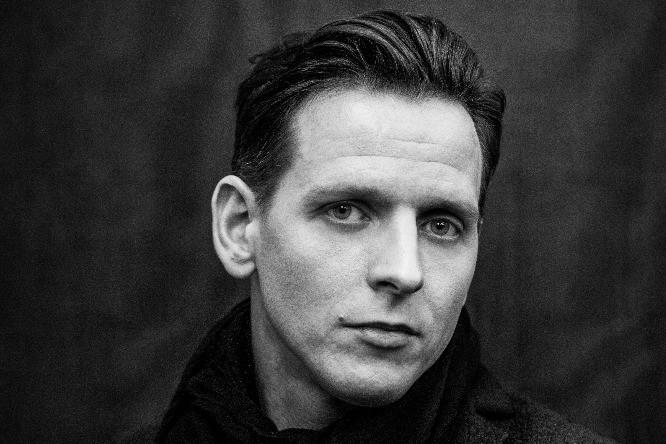
Is the Norwegian audience more open to dramaturgical interventions? I like working in Norway very much for one simple reason: there is not such a strong operatic tradition, and the people who come to the opera, come to live performances and are completely open. In 2015, for example, we did Carmen there and I said I don't want Carmen to die at the end. I don't really enjoy killing women in the opera anymore.
Yes. Female protagonists must always be "punished" for their love desires, for example. In the end, they either have to go crazy…… or commit suicide, or the male character will kill them. I really have a problem with this misogyny in opera. I solved it with Carmen so that she goes somewhere at the end. If we want to create a character of a single woman, then she walks off the stage in a "kill here who you want" style. We did a huge staircase for the final scene that Carmen started to climb up as she finished singing. She definitely didn't end up in a pool of blood.
Sometimes, however, collisions occur with the libretto. For Carmen, does this mean that her death prophecy will not come true? Can everything always be explained somehow, or do you sometimes have to let the libretto "live on its own" independently of the stage action? Now you have opened up a big topic. I would say that it is mainly necessary to distinguish between what is text and what is subtext. First, we must not always take the text literally, and second, we must not always believe what the characters say. We as humans don't always tell the truth either. This is what I tell my students in Ljubljana. Does Leporello even have that catalog of Giovanni's women? Are the numbers real, or does he just want to hurt Elvira? Or is he only talking about what he himself wishes?
And going back to that "card" aria in Carmen - in Romany culture it is generally very dangerous to divine to yourself. I don't know why Carmen does this, but I'd say she did something that is on the edge of the rules - that's why the result itself can be unexpected.
So the death omen could have been something of a warning against overstepping the bounds? Yes. And again from the other side: what are oracles? After all, even Nostradamus writes in riddles and says: "I myself do not know if I am influencing reality or if I am seeing reality." So I am not so much interested in the prophecy itself as in the following aria, when Carmen confronts the theme of death.
And then how did you resolve the very conclusion with the arrest of Don José after he (didn't) murder her? That was the only moment that was left a bit open-ended - and I personally like open endings. That was the moment when José falls to his knees and says: "I did it, I killed her." In my production, he had a knife in his hand without blood and Carmen was walking up the stairs... No one in the audience even asked me why she he did not murder. After all, who did he actually murder? That is a question.
Maybe he murdered the relationship...Yes - or just his idea of Carmen. After all, José does not love the real Carmen, he loves his ideas about her and his desire for freedom, which is exactly what the world of Micaela and his mother does not allow him. José harbors murderous aggression from a young age – the service he performs in Seville is more of an escape than his career aspirations. In other words, he has a wild element built into him that departs from the norm. So who is he really fighting at the end? With himself after all. He himself created his idea of love. Carmen says from the beginning that love is free.
Here I am not sure if I understand the "freedom" line of argument correctly. José is actually a deeply tragic character. He is a person who is constantly looking for himself in life. And that's how he runs into Carmen, where he gets a completely distorted feeling that he's finally found himself. If it wasn't Carmen, it would be some other woman, just not Micaela, who offers him a home, a family and a background. For José, Carmen is not just a dream woman, love and freedom, she is his new faith, divinity, fresh wind in his sails. When he loses her, he loses the meaning of life, he loses himself... When José appears before Camen at the end of the opera, she is faced with a madman who does not want to accept that there is something different than what he wishes. In this state, he can really do anything, he can also completely collapse.
How would the Czech audience react to this directorial approach? Do you ever run into misunderstandings? Yes, but I don't think that all people necessarily always understand each other. I admit, I had a period when I wanted to be a provocateur and a revolutionary at all costs, and not everything was right. But that is a certain period that one must go through. I don't want to fight today. Not in the sense that I would offer the audience some idea of mine as the only correct one. I am interested in open interpretations, and if someone wants to, they will find the meaning.
And how did you feel at the Ljubljana Opera? I left the National Theater there on a free foot in 2019, partly because I felt that even in Ljubljana, most of the audience would only like to come to classical opera or ballet performances . I had the feeling that I could no longer offer anything new of myself to the theater, and at the same time I was not moving forward myself. It is true that every season we did a contemporary premiere, we made orders for new Slovenian operas, we presented an opera work by Phillip Glass for the first time in Slovenia, and so on. So we took some steps, but if I could choose, I would make four new releases out of the four opera premieres. But the theater and the audience didn't necessarily want this either - and certainly not the marketing department (laughs).
I think this brings us nicely back to the second production called TiAmo, which we will have the opportunity to see at the Opera Festival 2022. TiAmo is in a way an experiment on the topic of what else opera can be. I am now at the stage where I am most interested in experimental music-theatrical work within the framework of contemporary opera production. I enjoy looking for new forms and new ways. I myself am also a big supporter of the Lehmannian theory of post-dramatic theatre, and I actually base it on that.
Would you briefly describe his thinking? In his study (Postdramatisches Theater, 1999, author's note) Hans-Thies Lehmann asks quite simply and logically how the automatic connection of theater and drama came about, describes theater and theatrical phenomena pre-dramatic and post-dramatic. On the basis of this study, I began to ask where the connection between opera and drama occurred (there, of course, I drew on Wagner's considerations, among other things), but I also asked where the connection between opera and theater occurred at all. Although there were theaters in the 16th century, operas were performed in aristocratic salons, i.e. as site-specific events. And although the Florentine Camerata is said to have wanted to reconstruct Greek drama, the first operas are based on the motifs of Ovid's Metamorphoses. So it is not about Greek drama, but about supreme mysticism, about extremely spiritual themes. This is how a form emerged, which from today's point of view is multimedia, or better put, intermedial, and which would also completely fulfill the Lehmannian phenomena of pre-dramatic theatre.
So we talk a lot about the deconstruction of the traditional building blocks of opera. Would you still call the TiAmo performance an opera? We are back to the expectations we discussed earlier. I'm starting to use the term "opera project". It is something that communicates with the opera, but it is an author's project. From my point of view, TiAmo is definitely an opera. It is a post-dramatic opera, but it absolutely exceeds the boundaries of the classical opera format as we know it from the 19th century.
And that both thematically, as well as in form and internal structure? Yes. This is not a classic story and it is not a classic composition. This is an electro-acoustic project that is largely improvised. And as for operatic experimentation itself, we are of course far from the first to do so. This has already happened in history and is still happening - from many examples, let's name for example my very favorite work Neither by Morton Feldman. It's a wonderful (anti-)opera!
So isn't it time for a new umbrella term? Isn't the name "opera" a bit small for new music-theatre formations? Do we still have enough? I would say yes. The term "Musiktheater" and "Tanztheater" have already been institutionalized. In my opinion, the biggest shift in contemporary history has taken place in dance theatre, from classical ballet to contemporary dance, which is now a fully established trend. In my opinion, contemporary drama is close behind. In my opinion, contemporary opera has not yet completely become a trend. But the beauty of the name "opera" itself is that it means "work". Nothing else. "Opera in musica" is a work set to music. I think that is why there is still an extended possibility to interpret the word. And I also think we owe it to opera – to explore its exploration, its broad spectrum and its possibilities. After all, the laboratory principle is one of the reasons why opera was created in the 16th century.
Was your collaboration with the other members of the production team of the TiAmo opera also carried out in a laboratory way? Together with Vítek Zouhar, we did many projects, not only opera, but also music-theatre or music-installation projects. And Ivoš Medek and I are also old acquaintances, we did MrTva together at Stavovské divadle, Alice in Bed or Maryša. And I must say that they are not only extraordinary professional colleagues, but also true friends. As well as the ISHA trio, which features Lucie Rozsnyó, my classmate from JAMU, Sára Medková, a performer who is also the co-author of the show, and Hana Hána, a flutist and also an excellent performer. Lukáš Medek collaborated on the video format, Jiří Pejcha creates the sound for us. The whole thing was created for two to three years because of the corona virus. It should have premiered in America the year before. We had a lot of tests online, because it was not possible otherwise, but the implementation of the project was constantly moving forward.
It will be interesting to observe the reaction of the Czech opera audience to the gender theme of this opera... The first theme was "about women in different life situations". It was originally going to be called MeToy as a paraphrase of the MeToo movement. But in the end, we found it too delicate considering how this topic is developing. And it is also one of the topics for us, not the only topic. The very structure of the production was really created in a team way. We tried to open questions rather than close answers. The three ladies are on stage in different forms of women. But everything is conducted on associative rather than illustrative levels. It was important not to say: "This is what we think, this is how it is." Even during work, we had different opinions. And if we found that we did not agree on something, we left the question open. But we tapped her. For me, good and interesting questions are much more important in art than approximate answers.
So a certain appeal lies in raising the topic itself? Yes. For example, the reaction of the respected Maestro Miloš Štědron, who came to the Brno performance, was terribly interesting. It wasn't until the second day after the performance that he called Sáre Medková that the whole thing had been put together in his head overnight. It was very nice that he got excited only the next day and then gave us a wonderful review in Divadelní noviny. In short, it is not a "first ball" performance. I'm interested in the acting in the theater. Abstract, associative art that does not impose itself, but offers space for imagination and imagination. And I am definitely interested in theater and art that wants to activate the viewer.
In other words, by bringing a problem to light without having to present a solution, I draw the viewer into a dialogue. So. And I will leave the possibility of different interpretations. I find that very very important in art.
Thank you very much for the nice interview and very inspiring questions!
Thank you very much for OperaPlus!
Rocc studied opera directing at the JAMU in Brno, post-graduate studies in scenography in Zurich and Offenbach am Main. As a director and designer, he created approximately 50 opera productions and collaborated with national theaters in Prague, Brno, Ostrava, Ljubljana (Slovenia), Riga (Latvia), Wroclaw (Poland) and the Bergen Opera (Norway). His work has been presented at many international festivals. (More info)

